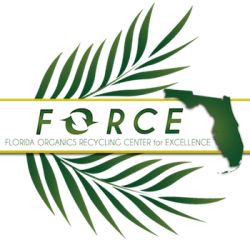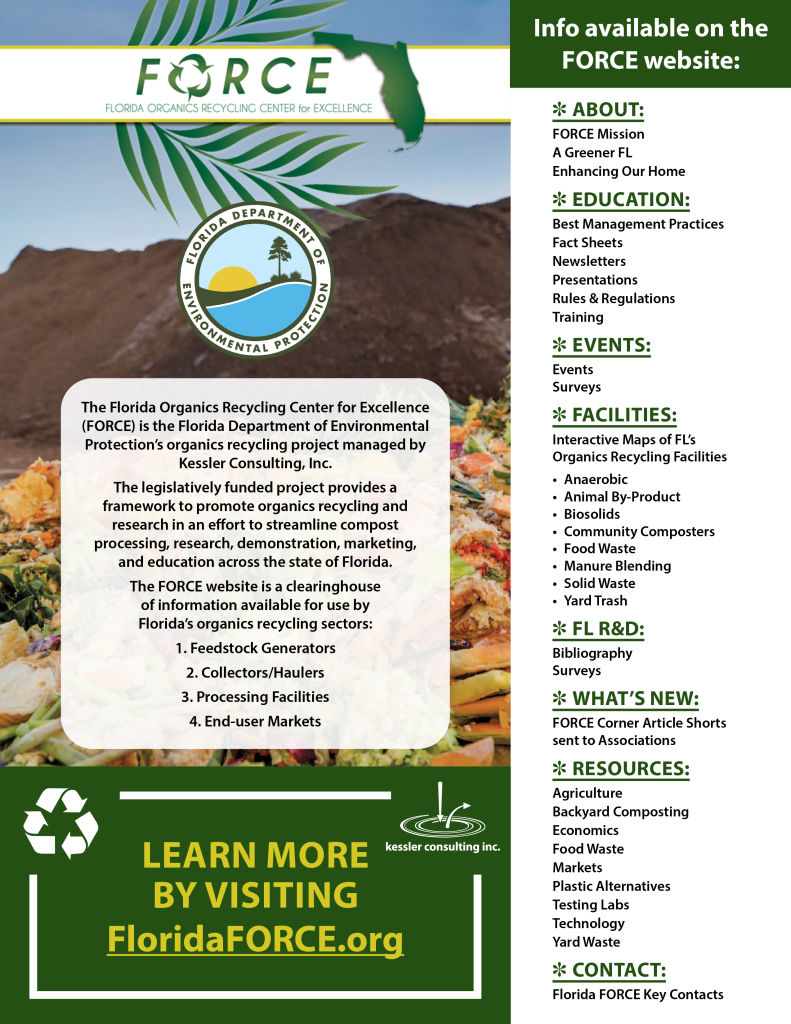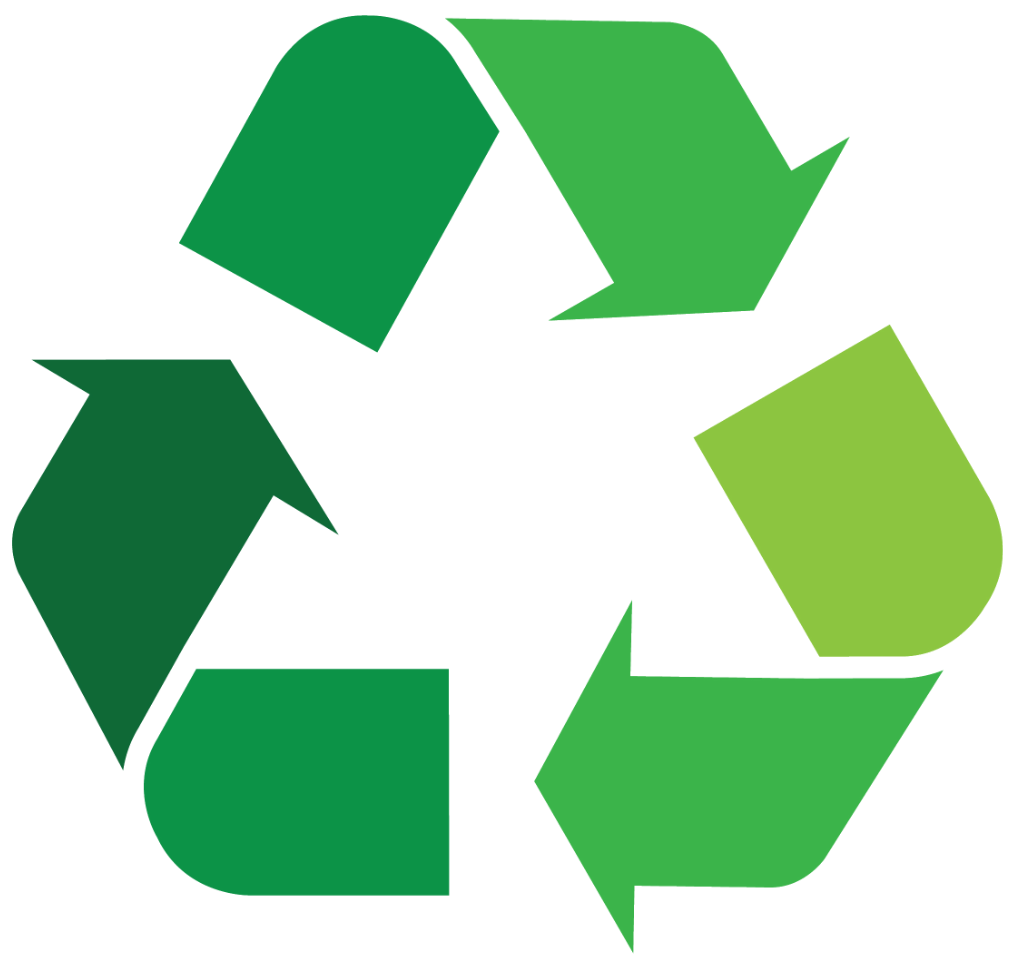
FLORIDA ORGANICS RECYCLING CENTER for EXCELLENCE
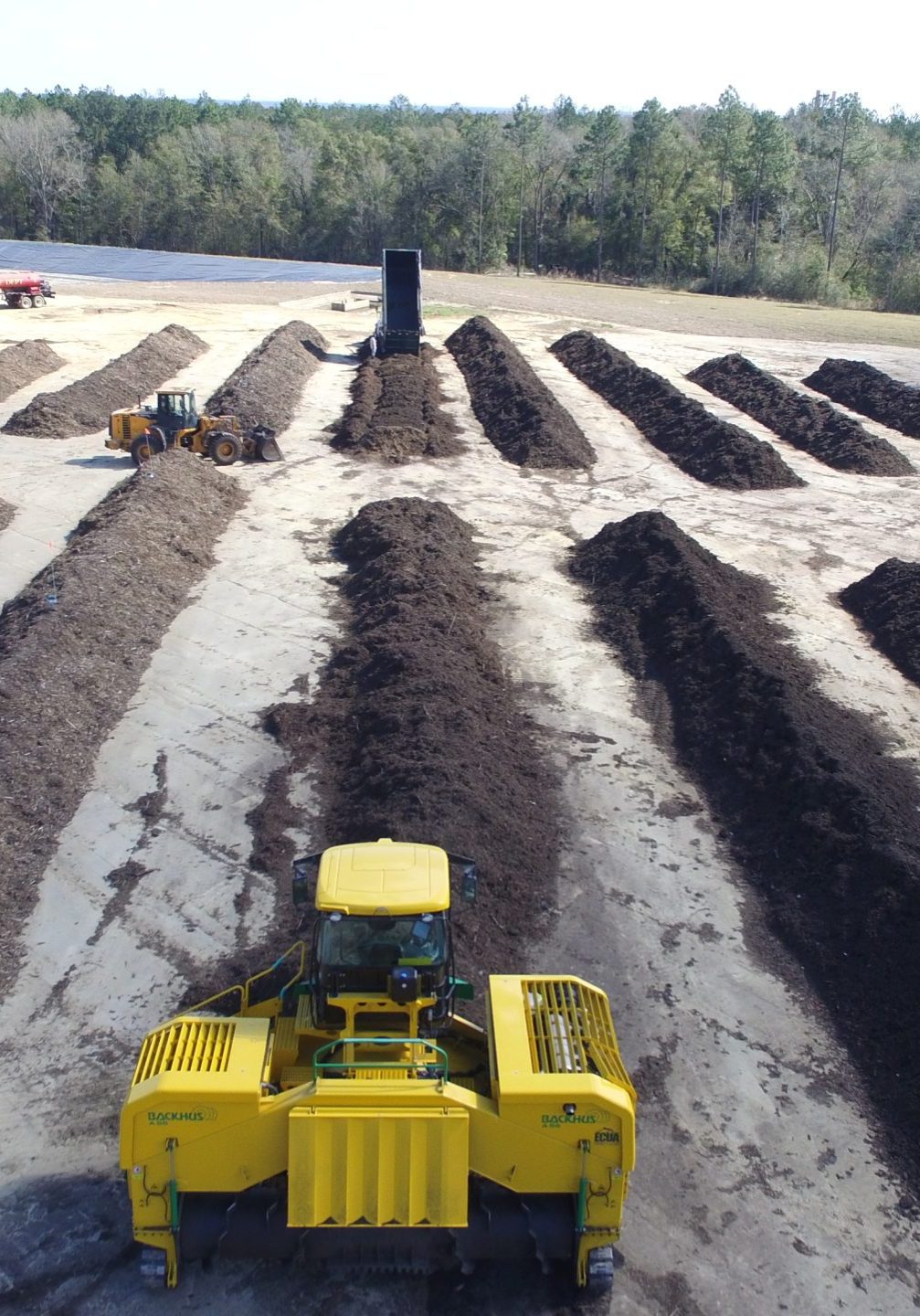
Florida's 75% Recycling Goal
The state of Florida has established a recycling goal of 75%, indicating the state’s commitment to minimizing solid waste streams entering landfills. Of the 50.7 million tons of municipal solid waste generated in Florida in 2022, organics, including food waste, yard waste and other paper, composed 25.3% of the total. Recycling rates for organics across the state include food waste at only 6%, yard waste at 59% and other paper at 8%. As a major contributor to municipal solid waste entering landfills in Florida, organics recycling is incredibly essential to reach the state’s 75% goal. For an update on the status of this goal, please visit the link provided in Green on this page.
Rerouting the organics waste stream to recycling centers has several environmental benefits including: diverting organic waste from incineration and landfill, treatment of pathogenic organisms, stabilization of nutrients and other organic compounds and phosphorus recycling. Recycled organics can also be used to help soil control erosion, retain moisture, improve texture, improve ecology, and increase organic matter content, as well as aiding with the production of alternate fuels.
For more information on this program, please visit the Florida Department of Environmental Protection’s (FDEP) website.
RESEARCH & DEMONSTRATION
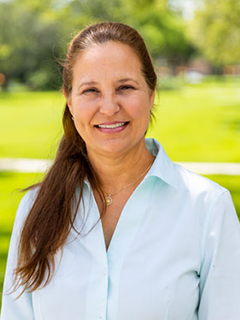
FORCE Featured Researcher
Helena Solo-Gabriele, Ph.D.
Professor (Composting Sargassum)
University of Miami
hsgabriele@miami.edu
Dr. Solo-Gabriele's research has focused on evaluating the relationship between the environment and human health. Her research has spanned diverse areas including evaluating the impacts of chemicals in the environment and evaluating the impacts of microbial contaminants in coastal zones.
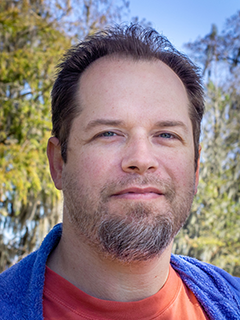
FORCE Featured Researcher
John Bowden
Professor (PFAS in Compost)
University of Florida
john.bowden@ufl.edu
Dr. John Bowden’s research spans analytical and environmental chemistry, environmental engineering, marine science, toxicology and community engagement efforts, to study the "life cycle" of chemicals of emerging concern. This includes their distribution in the environment, fate and transport, management and remediation, bio-integration and possible adverse exposure health-related outcomes.
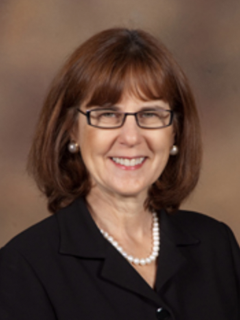
FORCE Featured Researcher
Dr. Debra Reinhart
Assistant VP for Research & Commercialization and Pegasus Professor (Food Waste Collection)
University of Central Florida
Debra.Reinhart@ucf.edu
Debra Reinhart is the Assistant Vice President for Research and Commercialization and a Pegasus Professor at the University of Central Florida (UCF). She serves as an Associate Editor for the Waste Management Journal and is actively involved in leadership roles with the International Waste Working Group and the Environmental Research and Education Foundation. Her research focuses primarily on waste treatment, including bioreactors, and sustainability for landfills.
